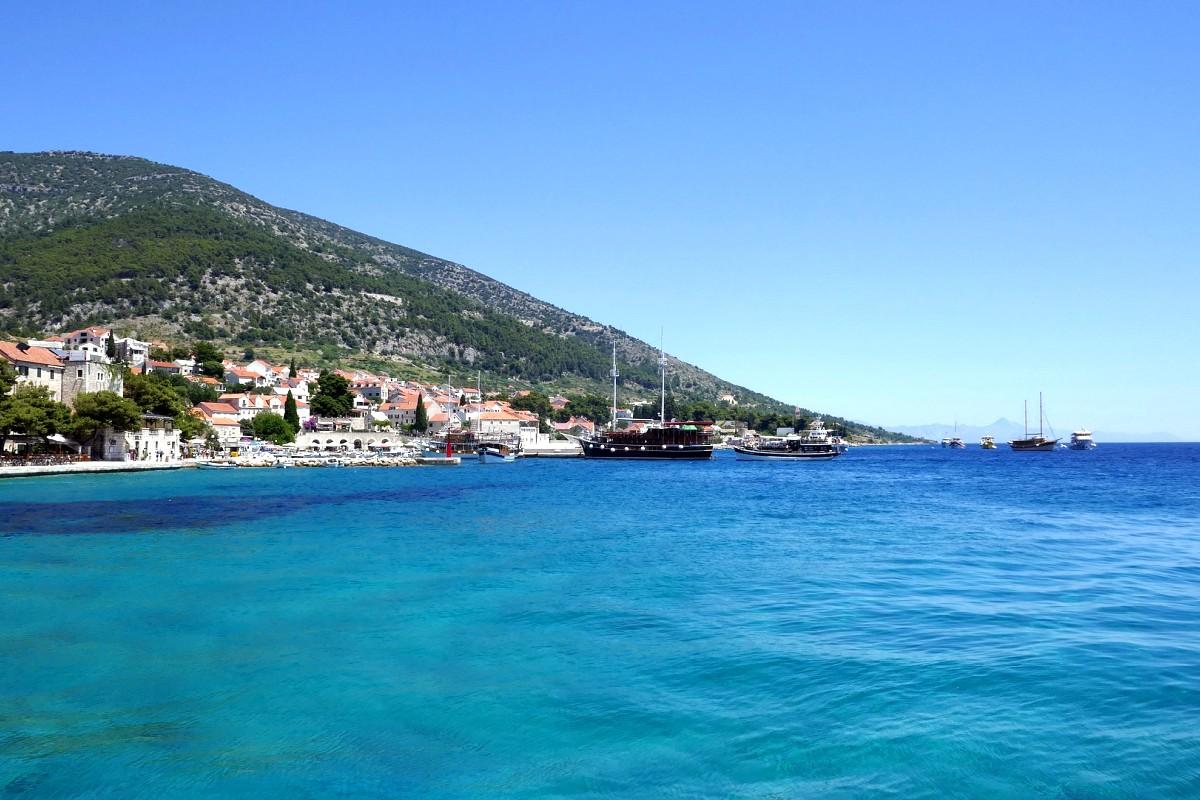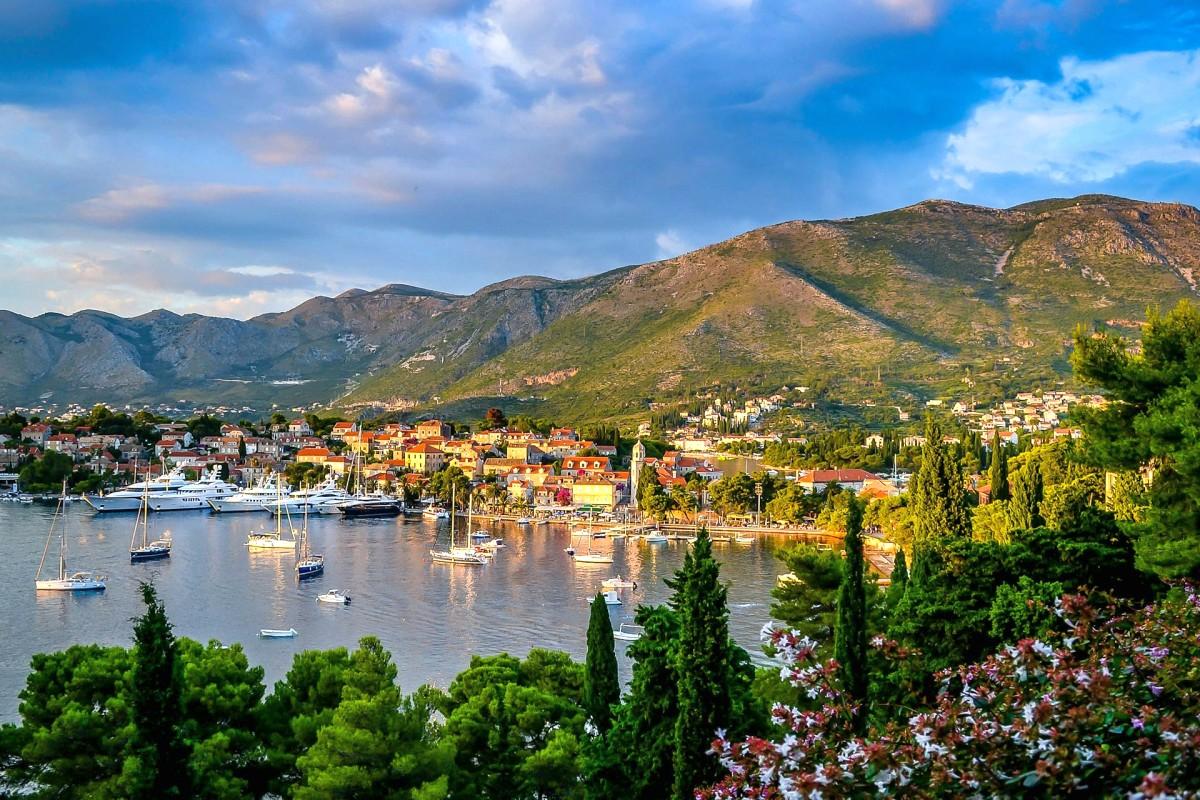Sep 05, 2025
Is It Worth Investing in Real Estate in Smaller Croatian Cities?
Zorana Barada
Client Relations and Promotion Coordinator

Recently, we often helplessly watch as real estate prices in large cities rise quickly and relentlessly. The average buyer, who spends a lot of time, effort, and energy accumulating funds to solve their housing issue, wonders whether it is even worth investing in an apartment in a big city when, for the same amount, they could become the owner of a spacious family house for sale in a smaller town. The choice of location depends on preferences, but locations often affect the price.
Why Consider Investing in Smaller Croatian Cities
For the reason mentioned above, that is, due to the rapid price increase, many buyers, especially younger families, are replacing large cities with smaller ones. By large cities, we mean, in Croatia, Split, Zagreb, and Rijeka (although there are significant price differences between these cities).
Why should you consider investing in smaller cities? The demand is gradually increasing due to the relocation from larger cities to smaller ones, so now is the right time to invest. Prices are still more affordable than in larger cities, and there is a good chance that property values will grow over time, depending on the investment in the city’s development. For now, the price per square meter in smaller cities is almost half of the price in larger cities.
Due to the increasing demand, investment in infrastructure is also growing, and in some places, tourism. Therefore, investing in real estate in a smaller city can also be of an investment nature for renting to tourists or students.
Advantages of Smaller Cities Compared to Larger Ones
The financial aspect is not the only reason why individuals choose smaller cities. Many aspire to a quieter lifestyle. Large cities are generally economic centers where most jobs are located; however, physical presence at the workplace is no longer a requirement for some positions since many jobs can be done from a home office. In general, life in smaller cities is more comfortable, relaxed, and safer, with less traffic.
Smaller cities are suitable for investment projects because there is still space for expansion, and they are not overbuilt like cities. Many investors choose to build residential buildings and sell new buildings in smaller cities, which are then bought by families or those who wish to engage in renting.

Potential for Property Value Growth in Smaller Areas
If we compare property prices in smaller and larger cities, we can say that prices in smaller cities are still lower than in larger cities, especially due to tourism that affects the price. However, property prices in smaller cities are showing an upward trend.
Price growth depends on many factors, such as investment in infrastructure, traffic connections with larger centers, proximity and availability of amenities, proximity to cities or airports, rental potential, IT sector development, or growth and development of tourism.
These are all factors that lead to higher demand, and greater demand leads to price increases.
The growth in value may be higher than in cities where prices are already high and thus have little room for further growth.
Risks and Challenges of Investing in Less Developed Areas

Since small towns are not “hot commodities,” there is a high chance that, in their case, the sale of real estate will be slower and more sluggish. The cause of this is the smaller number of buyers, or lower interest, which is one of the factors leading to lower prices.
Regarding the inner life of smaller cities in Croatia, despite affordability and accessibility of real estate, smaller cities are desirable for young families, there is still a demographic decline in such areas.
It often happens that local authorities do not invest enough in infrastructure, which gradually deteriorates, causing more damage than benefit, which not only fails to attract new residents but also drives out the old ones.
Key Factors That Affect Investment Profitability
If we start comparing smaller cities, we will find a lot of differences among them. Not all cities are equally developed, and not all have the same development potential.
For example, Knin and Samobor have significant developmental differences, which dictate prices and investment profitability.
One of the factors that affect return on investment is proximity to larger cities. Examples of smaller cities and their potential are real estate in Kaštela, Biograd, Omiš, etc.
Proximity to large cities is not useful if there is poor traffic connectivity. Quality and well-designed traffic infrastructure are of utmost importance.
An important factor is the presence of industry, smaller universities, and the degree of tourism development in smaller cities.
Examples of Cities With High Return on Investment

The concept of return on investment is common in marketing and economic circles. It refers to the percentage of profitability of an investment.
When it comes to real estate, factors such as the location of the property, purpose, maintenance costs, and seasonality affect the return on investment.
The portal Gradonačelnik.hr presented data on cities that allocated the most from their budgets and invested in development. According to their data, the leaders were the cities of Komiža, Zadar, and Hrvatska Kostajnica. It is also worth mentioning the cities of Omiš, Supetar, and Vis.
These are mostly EU projects, maintenance and investment in infrastructure, entrepreneurial zones, and economic development. All of these are factors that attract new residents and thus increase demand, which leads to an increase in property values.
Conclusion
Investing in real estate in smaller Croatian cities is becoming increasingly profitable due to lower prices, growing demand, and investments in infrastructure. Although there are risks such as slower growth and underdevelopment, well-chosen locations can bring significant returns. Smaller cities are increasingly attracting buyers looking for a quieter life and investment opportunities, especially near larger centers.
Found this useful? Share with

Client Relations and Promotion Coordinator
Dedicated and hardworking individual known for her strong sense of responsibility and punctuality. A true workaholic, she consistently strives for excellence while maintaining a warm, empathetic, and approachable demeanor. Always eager to help and support her colleagues, she is highly valued for her kindness and collaboration. Outside of work, she has a deep passion for literature and enjoys long walks, which help her stay grounded and inspired.
Dedicated and hardworking individual known for her strong sense of responsibility and punctuality. A true workaholic, she consistently strives for excellence while maintaining a warm, empathetic, and approachable demeanor. Always eager to help and support her colleagues, she is highly valued for her kindness and collaboration. Outside of work, she has a deep passion for literature and enjoys long walks, which help her stay grounded and inspired.
Want to connect with us? We'd love to hear from you! Send us a message, and we'll get back to you shortly.



